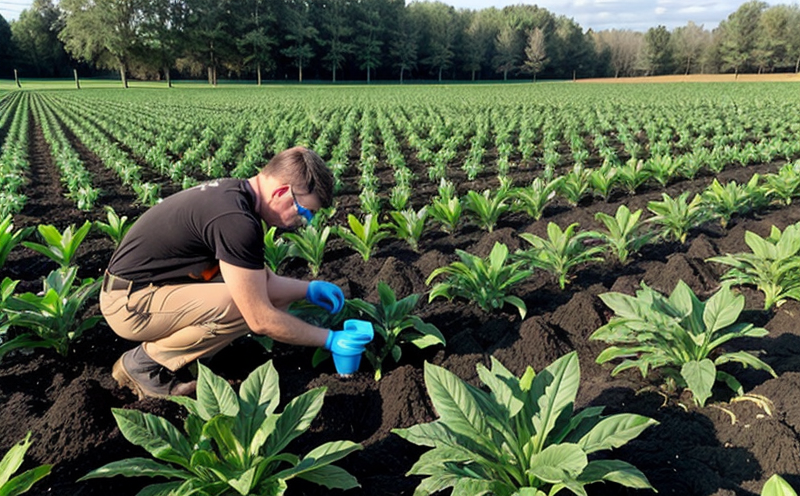Total Organic Matter Testing in Organic Fertilizers
Understanding total organic matter (TOM) content is crucial for assessing the quality and effectiveness of organic fertilizers. TOM refers to the amount of carbon present in a sample, which indicates the decomposable organic portion that can be utilized by plants.
In the agricultural sector, particularly within crop nutrition management, the accurate measurement of TOM plays an essential role in optimizing fertilizer application rates and improving soil fertility. This testing ensures compliance with international standards such as ISO 11269-3:2012 for determining total organic matter content.
Organic fertilizers derived from composts, manures, or other natural sources are rich in nutrients but also contain various impurities and contaminants. Testing these materials helps producers ensure consistent quality across batches and meet customer expectations regarding purity levels.
The process involves collecting representative samples of the fertilizer material according to best practices outlined by industry guidelines like ASTM D4840-19, which specifies methods for sampling unconsolidated bulk solid materials. Once collected, these samples are dried thoroughly at temperatures below 60°C before undergoing further analysis.
For precise determination of TOM content, laboratories employ gravimetric techniques based on combustion in an oxygen stream at elevated temperatures (around 550°C). During this process, all organic compounds within the sample convert to carbon dioxide gas. The weight loss measured post-combustion directly corresponds to the amount of organic matter present.
Interpreting results correctly is key; typically, a higher TOM percentage indicates better potential for supplying nutrients to plants through decomposition processes over time. However, excessive amounts might suggest less stable composts prone to rapid breakdown, potentially leading to nutrient loss during storage or application.
This testing method supports sustainable agriculture practices by providing insights into the stability and availability of nutrients within organic fertilizers. It allows farmers and researchers alike to make informed decisions about which products will yield optimal yields while minimizing environmental impact.
Why It Matters
Total Organic Matter Testing in Organic Fertilizers is vital for several reasons:
- Sustainability: Ensures that organic fertilizers contribute positively to soil health without causing harmful effects.
- Quality Control: Guarantees consistent product quality across different batches and suppliers.
- Compliance: Helps meet regulatory requirements set by various standards bodies worldwide.
- Nutrient Availability: Provides information on the rate at which nutrients become available to plants after application.
Industry Applications
The results from total organic matter testing play a significant role in various aspects of agriculture and forestry:
- Crop Nutrition Management: Allows for precise calibration of fertilizer application rates.
- Sustainability Initiatives: Supports efforts to reduce reliance on synthetic fertilizers.
- Soil Health Assessment: Assists in understanding long-term impacts on soil structure and composition.
- Pollution Prevention: Helps identify potential sources of contamination or nutrient runoff from improper use.
Use Cases and Application Examples
Total Organic Matter Testing finds applications in numerous scenarios:
- Biofuel Production: Ensures the quality of biomass feedstocks used for energy generation.
- Compost Quality Control: Monitors the decomposition process and nutrient content of compost materials.
- Manure Management: Evaluates the organic content and potential value as a fertilizer source.
- Soil Remediation: Assists in assessing the effectiveness of treatments aimed at restoring degraded soils.





